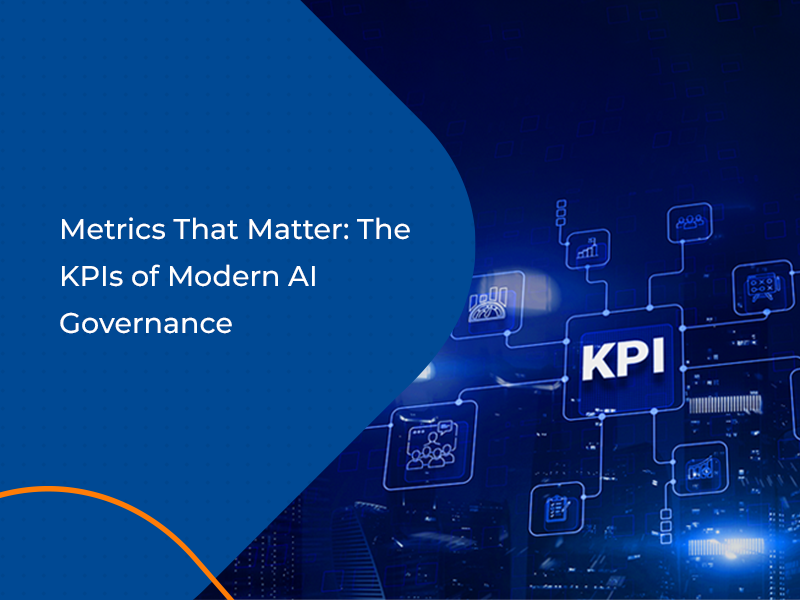In the dynamic landscape of modern business, data emerges as a potent force capable of revolutionizing supply chain management. Faced with heightened constraints and uncertainty, navigating the complexities of a data-driven supply chain era has become imperative for effective leadership. The aftermath of the global pandemic has added an unexpected layer, compelling organizations to rethink their approaches to supply chain dynamics.
EdgeVerve’s EdgeVerve AI Next, an AI-powered platform, stands out as a transformative solution that brings numerous benefits to the table, promising to propel supply chain management into a new era of efficiency and responsiveness.
Historical Perspective of Data Architectures in Supply Chains
In the early stages, supply chain management relied on traditional record-keeping methods and manual processes. Data management was mainly paper-based, thus making information flow slow and less efficient. Inventory tracking, logistics coordination, and order processing were time-consuming tasks prone to human errors. However, the shift towards data-driven decision-making led to the adoption of advanced data architectures like Enterprise Resource Planning (ERP) systems. However, these systems had limitations in handling real-time data, scalability, and complex analytics, presenting ongoing challenges to supply chain systems.
Challenges in Supply Chain Systems
Supply chain systems across organizations grapple with several challenges in efficiently handling data, impacting decision-making and customer experience. Some of the most prominent issues are:
- Data Silos: Data silos occur when different stakeholders or departments within the supply chain organization collate, store, and handle data independently. As a result, the information is fragmented and isolated, leading to a lack of coordination and visibility across the entire supply chain. Siloed data prevents a comprehensive understanding of end-to-end processes, which hinders effective collaboration and decision-making processes.
- Data Integration: The modern supply chain creates data from various sources, including suppliers, distributors, manufacturers, retailers, and customers. Integrating data from different systems and formats within an integrated platform can be challenging. The absence of seamless data integration hinders the ability to interpret and analyze data holistically, thus restricting an organization’s ability to detect the right opportunities and trends.
- Data Quality: Maintaining data quality is essential for correct analysis and decision-making—incomplete, inaccurate, or outdated data results in flawed insights and actions. Data quality issues can emerge from human errors, manual data entry, or outdated data collation methods. For reliable insights, data consistency and accuracy is essential to supply chain organizations.
- Security Concerns: Supply chain organizations deal with confidential and sensitive data, such as supplier information, pricing and logistics data, and customer details. Protecting such data from cyber-attacks, unauthorized access, or breaches is crucial. Security concerns related to data storage, transmission, and access pose significant risks to an organization and its partners.
- Real-Time Data Access and Analytics: As supply chains become dynamic and complex, real-time data access and analytics become essential. Traditional data architectures cannot offer real-time insights, preventing the organization from responding promptly to any modifications in demand, supply, or other issues.
- Data Compliance: Data compliance refers to the framework and processes that ensure that the data is managed, stored, and utilized suitably and in line with the applicable policies and rules. Lack of data governance leads to data mismanagement, compliance issues, and legal liabilities.
- Data Privacy and Ethical Concerns: With the growing use of customer data for customized services and analytics, supply chain organizations must address data privacy and ethical considerations. Ensuring compliance with data protection laws and maintaining customer trust is crucial to avoid legal consequences and reputational damage.
To resolve such challenges, supply chain organizations should invest in modern data platform solutions that promote data integration, quality, and real-time analytics while addressing security and privacy concerns. We recommend exploring the capabilities of EdgeVerve AI Next – a unified data solutions platform to integrate data from various sources across supply chains that can resolve the challenges mentioned above. The platform helps organizations maximize the value of their digital core investments, thus allowing them to scale.
Upcoming Trends in Supply Chain Data Architecture
As the supply chain domain evolves, various trends and technologies reshape data architectures for more efficient data management and analysis. Following are some of the latest trends and technologies transforming data architectures within the supply chain:
- Cloud-Based Solutions: Cloud computing has completely changed how data is stored and processed in the supply chain industry. Cloud-based solutions provide scalability, cost-effectiveness, and flexibility. With these solutions, supply chain organizations can store and access vast amounts of data without requiring huge on-premises infrastructure.
- Big Data Analytics: The enormous volumes of data created by supply chain processes are called big data. Advanced big data analytics tools and techniques allow supply chain organizations to process and analyze this data for meaningful insights.
- Internet of Things (IoT): IoT devices, such as RFID tags and sensors, are increasingly being used to collate real-time data on the condition, movement, and location of goods. IoT allows end-to-end visibility and tracking, enabling organizations to monitor inventory levels, enhance logistics, guarantee product quality, and boost supply chain transparency.
- Artificial Intelligence (AI) and Machine Learning: AI and ML algorithms are applied to supply chain data to gain valuable insights and automate processes. AI-driven demand prediction, maintenance, and route optimization help optimize inventory levels, boost demand-supply matching, and enhance the overall supply chain efficiency.
- Blockchain Technology: Blockchain technology provides secure and transparent data storage facilities and transactions. Blockchain can be leveraged within supply chains to set up tamper-proof product provenance and compliance records.
- Edge Computing: Edge computing means processing data closer to the source instead of sending all data to centralized cloud servers. This approach minimizes latency and bandwidth requirements, making it excellent for real-time data processing and decision-making in supply chains.
- Data Visualization and Business Intelligence (BI) Tools: Data visualization and BI tools allow supply chain professionals to display complex data in a comprehensible and visually appealing format.
Advantages of Modern Data Architectures
Modern data architectures in supply chains offer multiple advantages, empowering organizations to enhance their operations, gain a competitive edge, and boost customer satisfaction. The following are the key benefits:
- Real-Time Insights: Real-time data processing and analytics allow supply chain managers to access up-to-the-minute information on demand, inventory, production, and logistics. This capability is especially valuable in dynamic and fast-changing markets. Such insights empower organizations to make the right decisions immediately.
- Predictive Analytics: Modern data architectures support advanced predictive analytics powered by AI and ML algorithms. Predictive analytics uses historical and real-time data to predict demand and supply chain disruptions and adjust inventory levels.
- Improved Visibility: Modern data architectures enable end-to-end visibility across the supply chain. With centralized data storage and real-time data integration from various sources, organizations can track inventory levels, monitor production processes, and trace the movement of goods at each stage.
- Cost Savings: Efficient data analysis and management can result in significant cost savings within supply chain operations. Organizations can minimize inventory carrying costs and transportation expenses by detecting inefficiencies enhancing processes, and improving production schedules.
- Better Decision-Making: Data-driven decision-making gives supply chain managers objective and evidence-based insights.
Conclusion
With expectations for retail service efficiency on the rise and consumers empowered with alternatives, a unified digital platform is not just beneficial but critical. EdgeVerve AI Next enhances data-driven supply chain management, providing a unified and intelligent platform that addresses challenges, leverages predictive analytics, automates processes, enhances collaboration, and facilitates continuous improvement.
In this scenario, EdgeVerve AI Next becomes the cornerstone for organizations aiming to maximize the value of their digital core investments within supply chain management, resulting in better decision-making and enhanced customer satisfaction.



Possibilities Unlimited
Possibilities Unlimited
Inspiring enterprises with the power of digital platforms
More blogs from EdgeVerve →